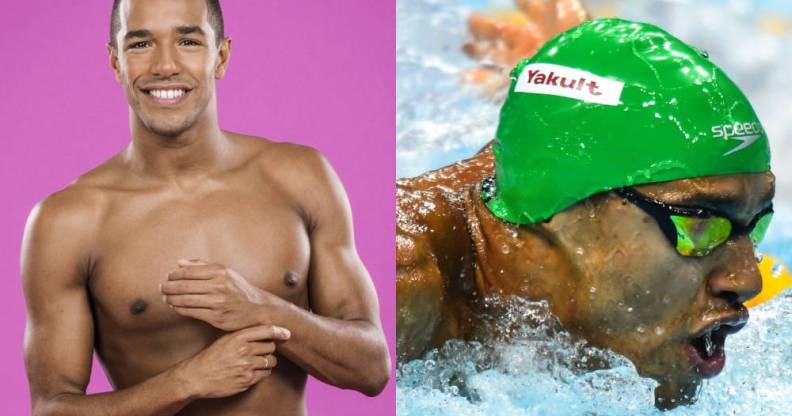Gay Olympic hopeful Michael Gunning was told all his life ‘Black people don’t swim’. So he proved them wrong

Michael Gunning. (E!/Getty)
Olympic hopeful Michael Gunning said he was told by his peers that “Black people don’t swim”, but it only made him go faster.
The stereotype that “Black people don’t swim” has been perpetuated by systemic racism, and comes from a historical lack of accessibility to swimming facilities for Black people due to racial segregation.
The 26-year-old athlete told Reuters he was subjected to the stereotype by his classmates as a child, but said: “For me, it was just a motivation to prove them wrong and get selected for Team GB and be away for weeks from school and then come back and show them my medals.” Which is exactly what he did.
He began swimming at the age of four. By 13 he held his first national title and by 16 he had joined the British national team and qualified for the European Open Water Championships.
He said: “I was so excited that I didn’t think about the nerves at the time. I was doing what I loved and had the best times going away with the team and flying the GB flag.”
Gunning had planned to compete at the Tokyo 2020 Olympic Games, but the event has been pushed to 2021 because of the coronavirus pandemic.
Michael Gunning came out as gay while filming The Bi Life.
Michael Gunning is both a Jamaican and British citizen, and in 2017 he decided to switch and swim for the Jamaican national team.
Part of what influenced his decision was surviving the Manchester Arena bombing, at which 23 people died during an Ariana Grande concert.
“It really put life into perspective,” he told Reuters, “and that was the year that I decided to swim for Jamaica to inspire more people and to share my story.”
Gunning originally came out as bisexual, but while filming the reality dating show The Bi Life he came out again, as gay.
His sexuality has made representing Jamaica, once described by TIME magazine as the “most homophobic place on Earth”, difficult.
But, he said: “The world is turning slowly and I think it is changing and I’m sure in time, Jamaica will accept LGBT+ people and legislation will change, but it’s a slow process and I think the more role models we have, the better.”

